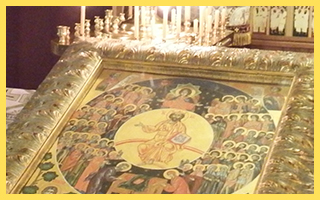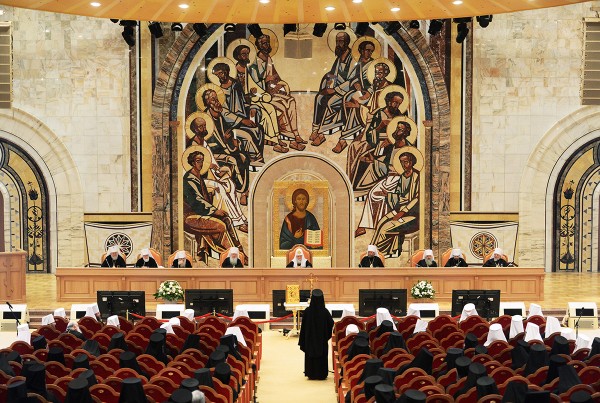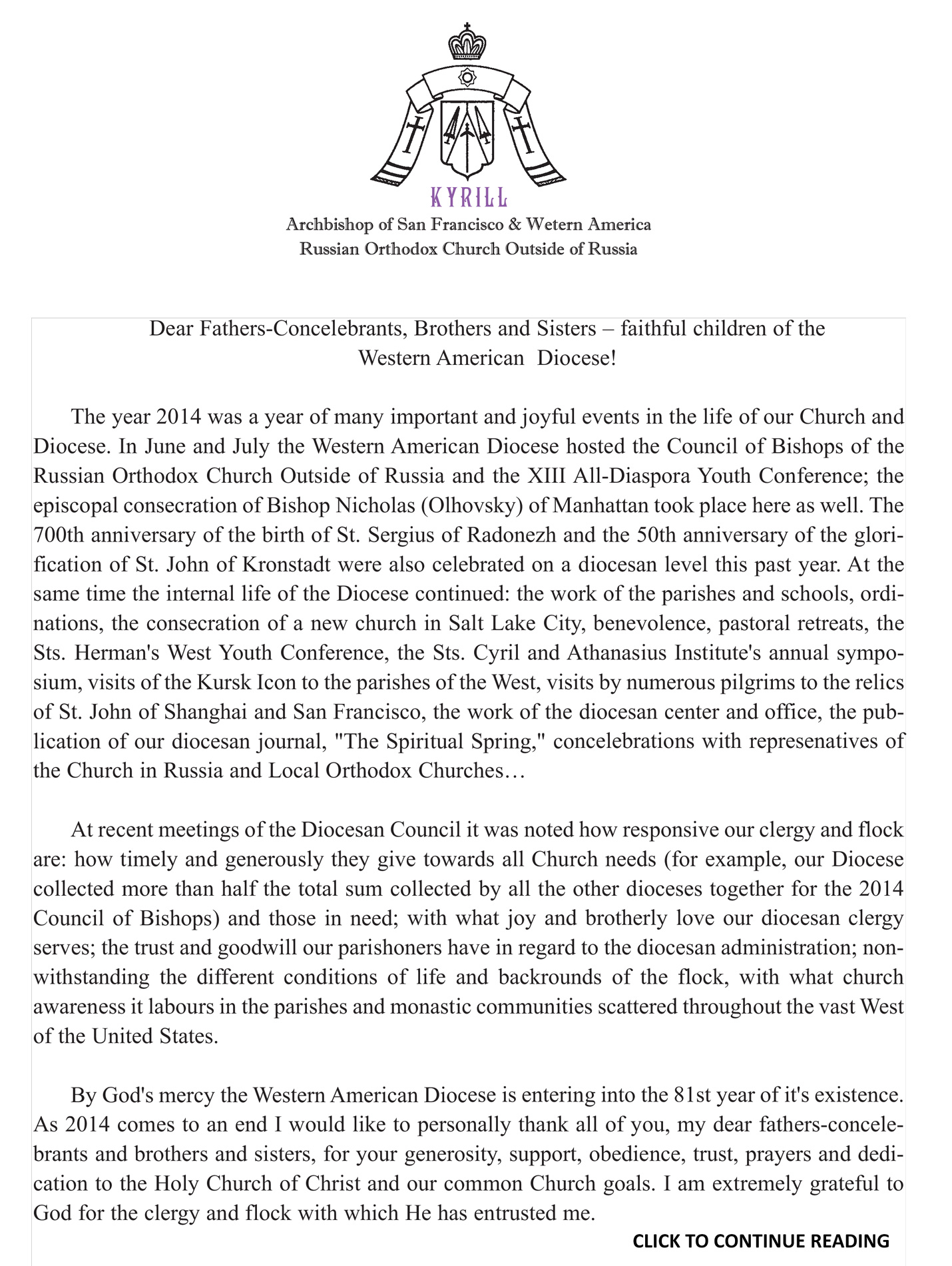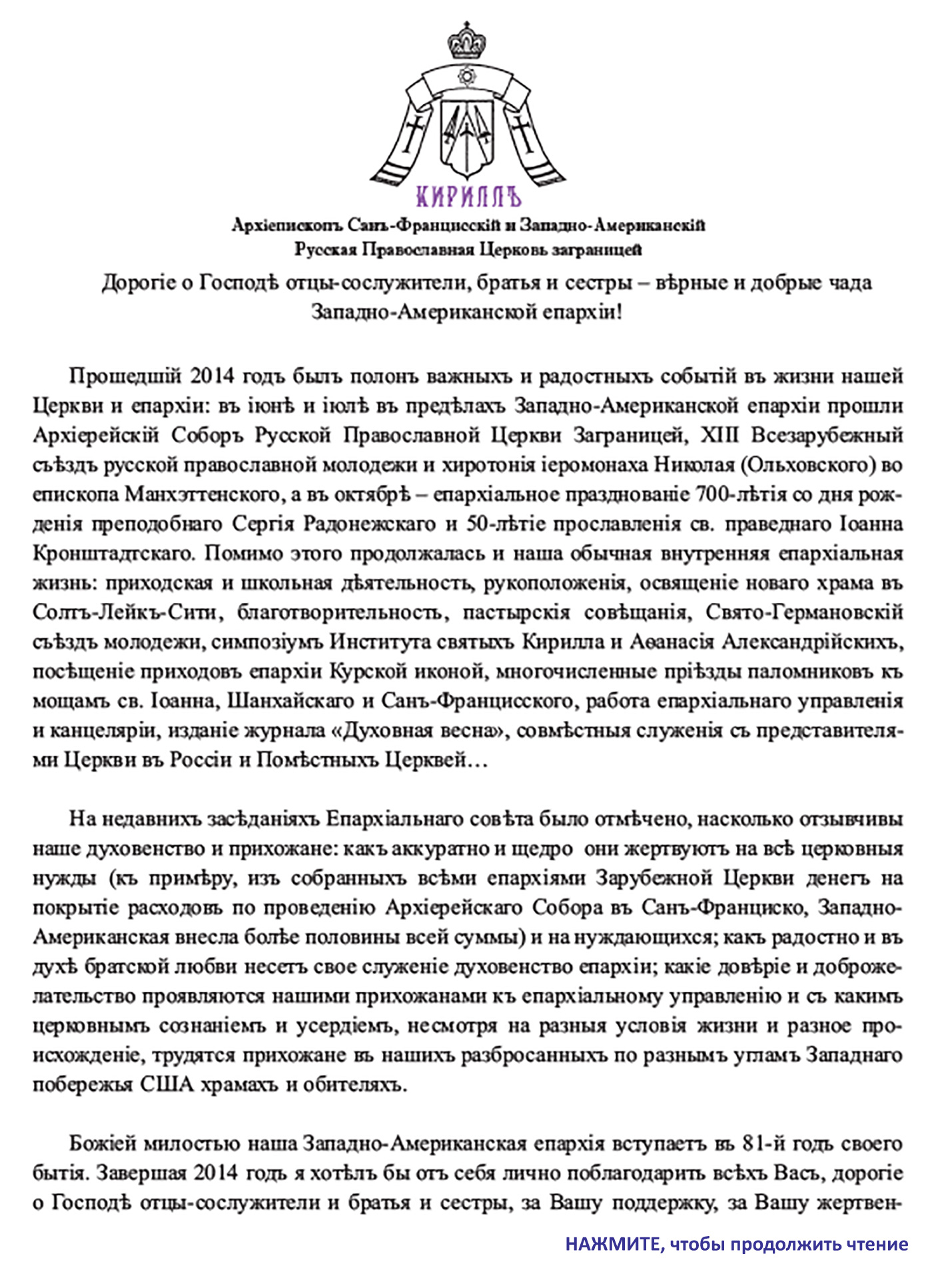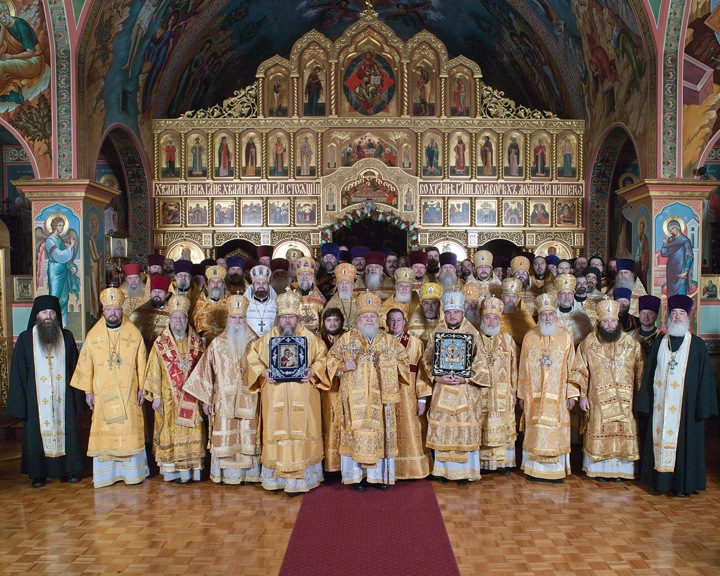The Ascension of our Lord . . . . . June 9
Pentecost – Trinity Sunday . . . . . June 19
Parish Feast Day. All Saints . . . . . June 26
Nativity of St. John the Baptist . . . . . July 7
Ss. Apostles Peter and Paul . . . . . July 12
The Holy Transfiguration of Our Lord, God and Saviour Jesus Christ . . . . . August 19
The Dormition of Our Most Holy Lady the Theotokos and Ever-Virgin Mary . . . . . August 28
The Beheading of the Glorious Prophet, Forerunner, and Baptist John . . . . . September 11
The Nativity of Our Most Holy Lady the Theotokos and Ever-Virgin Mary . . . . . September 21
The Exaltation of the Precious and Life-giving Cross . . . . . September 27
The Protection of Our Most Holy Lady the Theotokos and Ever-Virgin Mary . . . . . October 14
The Entry of the Most Holy Theotokos into the Temple . . . . . December 4
2017
The Nativity according to the Flesh of Our Lord, God and Saviour Jesus Christ . . . . . January 7
The Circumcision of Our Lord Jesus Christ . . . . . January 14
Baptism of the Lord . . . . . January 19
The Meeting of Our Lord, God and Saviour Jesus Christ . . . . . February 15
The Annunciation of Our Most Holy Lady, the Theotokos and Ever-Virgin Mary . . . . . April 7
The Bright Resurrection of Christ, The Pascha of the Lord . . . . . April 16
